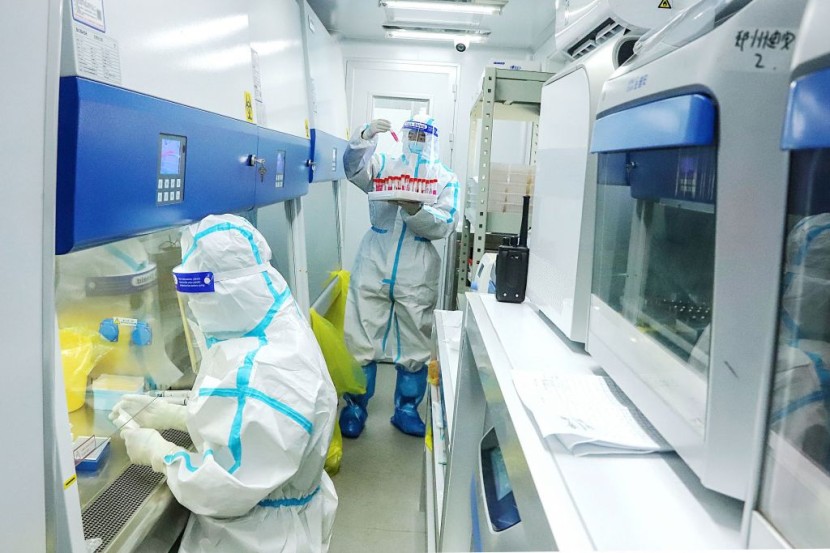
Scientists have raised the alarm about a new "worst-ever" super-mutant COVID-19 variant that would reduce vaccination effectiveness by at least 40%.
Experts previously detailed how the B.1.1.529 variation contains around 30 mutations, the most ever observed in a variant and twice as many as Delta, implying that it might be more jab-resistant and transmissible than any previous form.
Scientists warn new COVID-19 super variant
The super variant, which the World Health Organization is expected to call "Nu" in the coming days, has caused an exponential surge in infections in South Africa and has already spread to three nations, including Hong Kong and Botswana.
The federal government keeps a close eye on the variant and may prohibit flights from the African nations impacted. "If we need to target closures in specific places, we won't hesitate," Finance Minister Simon Birmingham told Sky News Australia.
Per Daily Mail, Australia is closed to visitors but will reopen on December 1 to foreign skilled migrants and students vaccinated and tested negative. Due to a serious Delta outbreak on the subcontinent, the Australian government prohibited flights from India for two weeks in April.
In South Africa, Hong Kong, and Botswana, just 59 confirmed instances have been found. The variant has about twice as many mutations as the Delta variant, which might make it more transmissible and evade the protection provided by past infection or vaccination.
The decision to impose travel restrictions was "prudent," according to the expert whose research influenced the first coronavirus lockdown. Scientists are optimistic that it can be contained, and the UK has responded quickly to prevent any further spread.
Read Also : US FDA Recalls Pain Medicine Methocarbamol 500mg; Patients Advised To Stop Taking the Pill
UK, South Africa work to study the new variant's implication
In addition to prohibiting travel from six countries - South Africa, Namibia, Lesotho, Botswana, Eswatini, and Zimbabwe - persons who have come from those countries in the previous ten days would be requested to take a PCR test. It's vital to remember that viruses are known to change, and they can also die out. It was discovered during a recent spike of COVID-19 cases in South Africa.
They grew to over 1,200 per day on Wednesday and 2,465 per day on Thursday, up from a little over 200 per day earlier. According to South African health minister Joe Phaahla, the first surge occurred in and around Pretoria, with clusters of infections related to student gatherings.
The COVID-19 super variant was identified when scientists investigated the genetic sequencing of these new cases. Importantly, they're now determining how much this uptick is due to the new B.1.1.529 variant. It is being studied by experts from seven South African universities, which have 100 entire genomes. They also claim that a PCR test reveals the variation.
Scientists in South Africa stated they had discovered the novel COVID-19 variant in modest numbers and attempted to figure out what it meant. The variant features a "quite uncommon constellation" of mutations, which the scientists said are alarming because they might enable it to dodge the body's immunological response and become more transmissible.
The UK Health Security Agency stated that authorities had found no variant cases in the United Kingdom. They were in contact with South African colleagues to discuss their data, Newshub reported.
Related Article : WHO Warns Against Complacency With Coronavirus, Says Vaccines 'Do Not Fully Prevent Transmission'








